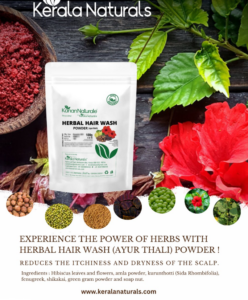In a world where environmental sustainability is paramount, composting emerges as a simple yet powerful solution to reduce waste and enrich soil. By harnessing the natural process of decomposition, kitchen scraps can be transformed into valuable compost, providing a nutrient-rich amendment for gardens, lawns, and indoor plants. In this article, we’ll explore various composting methods that fit any space, from backyards to apartments, and delve into the numerous benefits of composting for both the environment and our gardens.
The Basics of Composting:
Composting is the process of breaking down organic materials, such as kitchen scraps and yard waste, into a nutrient-rich soil amendment known as compost. This natural fertilizer enriches soil, improves its structure, and promotes healthy plant growth. The basic ingredients for successful composting include: Greens: Nitrogen-rich materials such as fruit and vegetable scraps, coffee grounds, and grass clippings. Browns: Carbon-rich materials such as dried leaves, straw, cardboard, and newspaper. Water: Moisture is essential for the composting process, so be sure to keep your compost pile adequately moist but not waterlogged. Air: Oxygen is necessary for the decomposition process, so be sure to aerate your compost pile regularly by turning it with a pitchfork or compost aerator.Composting Methods for Any Space:
Backyard Composting: If you have a backyard or outdoor space, traditional compost bins or piles are an excellent option for composting kitchen scraps and yard waste. Simply layer your greens and browns in the bin, turning the pile occasionally to aerate it and speed up decomposition. Vermicomposting: Vermicomposting, or composting with worms, is an ideal option for apartment dwellers or those with limited outdoor space. A vermicomposting bin can be kept indoors and requires minimal maintenance. Red wiggler worms feed on kitchen scraps, converting them into nutrient-rich worm castings, or vermicompost. Bokashi Composting: Bokashi composting is a fermentation process that allows you to compost all types of organic waste, including meat, dairy, and cooked foods. Bokashi bins use a special mix of beneficial microbes to ferment kitchen scraps, producing a nutrient-rich liquid fertilizer and pre-composted material that can be buried in the soil to finish decomposing.Benefits of Composting:
Waste Reduction: Composting diverts organic waste from landfills, where it would otherwise release methane, a potent greenhouse gas. Soil Enrichment: Compost improves soil structure, texture, and fertility, leading to healthier plants with stronger root systems and increased resistance to pests and diseases. Carbon Sequestration: Composting helps to capture and store carbon in the soil, mitigating climate change by reducing atmospheric carbon dioxide levels. Water Conservation: Healthy soil enriched with compost has improved water retention, reducing the need for irrigation and helping to conserve water. Cost Savings: Composting reduces the need for store-bought fertilizers and soil amendments, saving you money in the long run.Getting Started with Composting:
Choose a composting method that suits your space, lifestyle, and composting goals. Collect kitchen scraps in a countertop compost bin or a designated container in your kitchen. Layer greens and browns in your compost pile or bin, ensuring a balanced ratio of nitrogen-rich and carbon-rich materials. Monitor your compost pile’s moisture levels and aerate it regularly to promote decomposition. Once your compost is dark, crumbly, and earthy-smelling, it’s ready to use in your garden or container plants.Composting is a simple yet powerful way to reduce waste, enrich soil, and promote environmental sustainability. Whether you have a backyard or live in an apartment, there’s a composting method that fits your space and lifestyle. By harnessing the natural process of decomposition, we can turn kitchen scraps into valuable compost, closing the loop on waste and nurturing healthy, vibrant gardens for generations to come. Source Credits: thehoomaneclub







